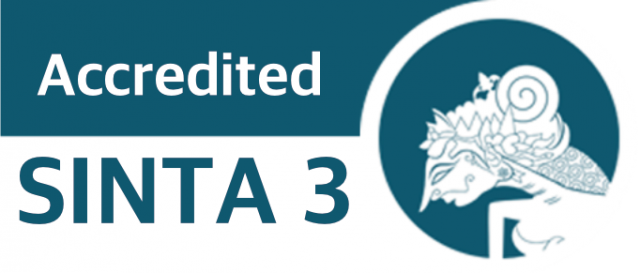Peningkatan Kualitas Pembelajaran IPS melalui Model Pembelajaran Kooperatif Tipe Bamboo Dancing
DOI:
https://doi.org/10.24114/antro.v3i1.7497Keywords:
Learning and Learning Outcomes, Cooperative Learning Model Type Bamboo Dancing, IPS Learning.Abstract
The purpose of this study is to improve teacher skills, student activities and student learning outcomes after the teacher using cooperative learning model type Bamboo Dancing in social studies learning in fourth grade students at SD Negeri 101768 Tembung. This type of research is a classroom action research (PTK) consisting of 3 cycles, each cycle consisting of PTK stages. The population in this study were all students of class IV-A which amounted to 27 students. Data analysis techniques used are qualitative and quantitative. Based on data of research result there is improvement of learning quality of IPS. The skills of teachers experienced an increase in cycle I obtained an average score of 2.6, cycle II to 3.2 and cycle III increased to 3.8. Student activity also shows an increase, in cycle I get average score 2,3, cycle II score average 2,6 then cycle III average score reaches 3.5. Percentage mastery learning students also experienced an increase in the first cycle reached 44%, 67% cycle II and 93% 93% cycle. Thus it can be concluded that through cooperative learning model type Bamboo Dancing can improve the quality of learning that includes teacher skills, student activities, and student learning outcomes in the IPS Subject.References
Anitah, Sri dkk. 2009. Strategi Pembelajaran di SD. Jakarta: Universitas Terbuka.
Anni, C. T. 2006. Psikologi Belajar. Tembung : UPT MKK UNNES.
Aqib, Zaenal. 2008. Penelitian Tindakan Kelas. Bandung : Yrama Widya.
Arini, Munisah, Soewarsono, dan Susilo. 2009. Kajian Ilmu Pengetahuan Sosial. Salatiga Widya Sari Press.
Asra, Deni Darmawan, dan Cepi Riyana. 2007. Komputer dan Media Pembelajaran di SD. Jakarta : Direktorat Jendral Pendidikan Tinggi Departemen Pendidikan Nasional.
Baharuddin dan Esa W. 2008. Teori Belajar dan Pembelajaran. Jogjakarta : Ar-Ruzz Media.
Depdiknas . 2004. Peningkatan Kualitas Pembelajaran. Jakarta: Depdiknas.
Dimyati dan Mujiyono. 2009. Belajar dan Pembelajaran. Jakarta : Renika Cipta.
Djamarah , S.B. 2005. Guru dan Anak Didik dalam Interaksi Edukatif. Jakarta : Renika Cipta.
Gulo, W. 2002. Metodologi Penelitian. Jakarta : PT. Gramedia Widiasarana Indonesia.
Mulyani S. dan Johar P. 2001. Strategi Belajar Mengajar. Bandung:CV. Maulana.
Mulyasa, E. 2009. Menjadi Guru Yang Profesional Menciptakan Pembelajaran Kreatif dan Menyenangkan. Bandung : Remaja Rosdakarya
Suprijono. 2010. Cooperative Learning. Yogyakarta: Pustaka Pelaja
Sutikno, M. Subri. 2009. Metode Bamboo Dancing. [online] http://www.google.com/metode bamboo dancing.pdf [13 Mei 2016]
Downloads
Published
How to Cite
Issue
Section
License

This work is licensed under a Creative Commons Attribution 4.0 International License
Authors who publish with this journal agree to the following terms:
- Authors retain copyright and grant the journal right of first publication with the work simultaneously licensed under Creative Commons Attribution 4.0 International License that allows others to share the work with an acknowledgement of the work's authorship and initial publication in this journal.
- Authors are able to enter into separate, additional contractual arrangements for the non-exclusive distribution of the journal's published version of the work (e.g., post it to an institutional repository or publish it in a book), with an acknowledgement of its initial publication in this journal.Penulis.
- Authors are permitted and encouraged to post their work online (e.g., in institutional repositories or on their website) prior to and during the submission process, as it can lead to productive exchanges, as well as earlier and greater citation of published work (Refer to The Effect of Open Access).


